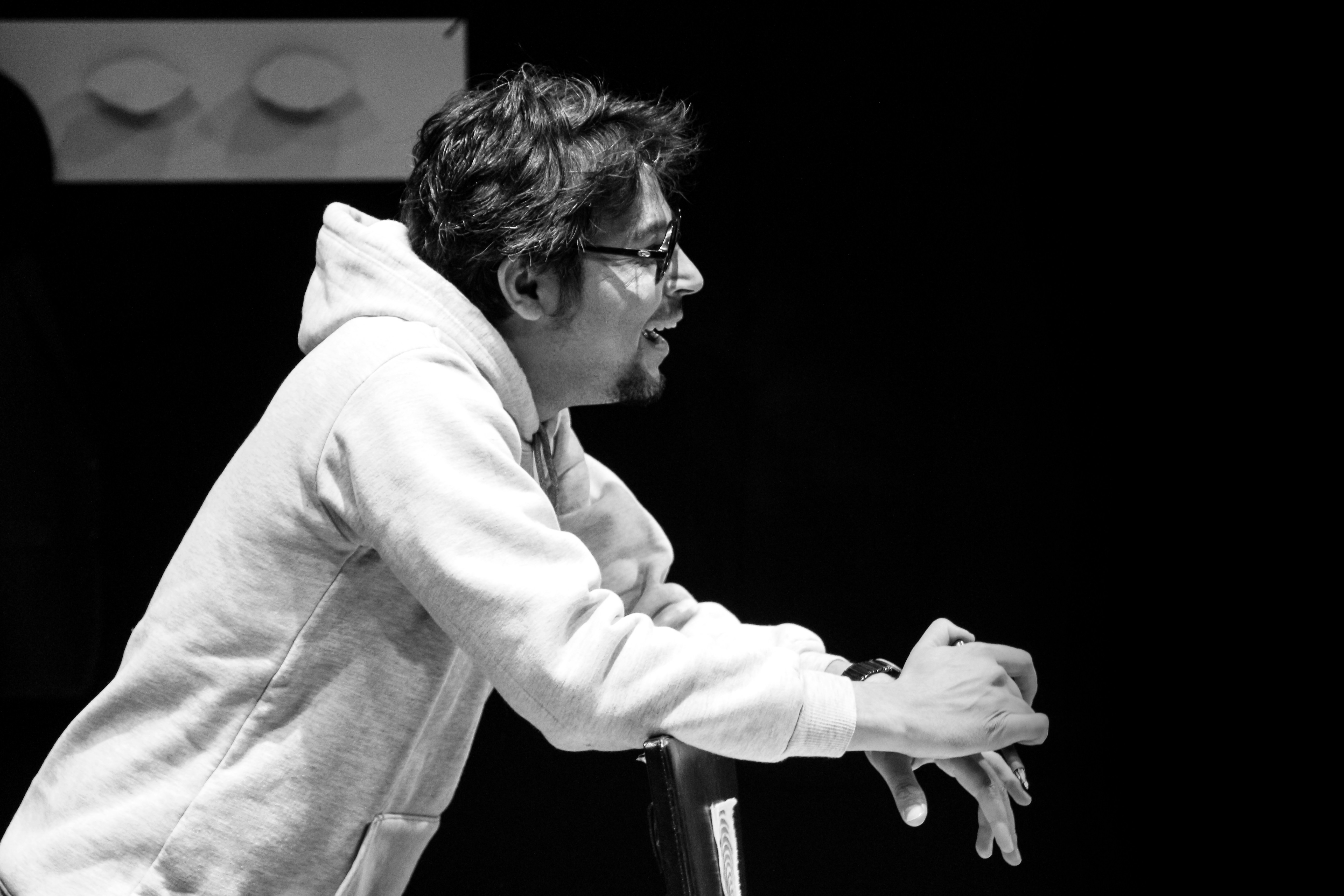What Is a Deputy Stage Manager's Role?
by WriteSeen
A deputy stage manager (DSM) is the backbone of theatrical productions, ensuring that all elements flow seamlessly together. They act as a crucial link between the production crew and performers, coordinating rehearsals, managing prompt books, and executing cues during live shows.
With organizational prowess and excellent communication, DSMs ensure that both technical aspects and performance details align perfectly, creating the magic seen on stage. Learn about the DSM's critical skills, career paths, and how they adapt across various productions in this article designed for aspiring creatives.
Understanding the Role of a Deputy Stage Manager
So, what exactly does a Deputy Stage Manager (DSM) do? A DSM is your backstage powerhouse. Responsible for running rehearsals, managing prompt books, and cueing shows. This role is all about ensuring synchronization between the artistic vision and technical execution.
-
Cue Coordination: The DSM calls cues for lighting, sound, and prop changes. They ensure these technical aspects align perfectly with onstage action. Your role here is pivotal; the show depends on your precise timing.
-
Communication Hub: As the bridge between the director, cast, and crew, you facilitate smooth communication. Effective coordination here minimizes the risk of miscommunication and ensures a unified effort toward production goals.
-
Rehearsal Management: organizing and running rehearsals require meticulous planning. Your management ensures actors and crew understand their roles, cues, and any changes in the production.
Every moment counts for a DSM. You prepare for every scenario, reducing chaos during performances.
A smooth-functioning production relies heavily on a DSM's ability to manage dynamic elements swiftly.
This understanding of a DSM's role lays the groundwork for diving into the skills that are indispensable for success in this position.

Key Skills and Qualifications for a Deputy Stage Manager
Stepping into the shoes of a DSM demands specific skills and qualifications. Mastery in these areas sets the foundation for a thriving career in stage management.
Essential Skills
To succeed, you need a toolkit filled with versatile abilities.
- Organization: Keep track of scripts, cues, and changes without breaking a sweat. This is critical for managing rehearsals and performances effortlessly.
- Communication: Clearly convey instructions and updates. Your ability to speak effectively with actors, directors, and tech crews resolves potential conflicts with ease.
- Multitasking: Show calling involves coordinating various cues at once. Your capacity to juggle tasks ensures you can manage these responsibilities without losing focus.
- Problem Solving: Unplanned challenges will arise, especially during live performances. You quickly adapt and find solutions to keep the show on track.
Qualifications
While formal education can be valuable, real-world experience is a major player in stage management.
- Consider pursuing degrees in theater arts or attending workshops and courses focused on stage management. These programs offer theoretical and practical insights.
- Experience in theater environments, such as volunteering in local productions, gives aspiring DSMs hands-on learning. This experience is priceless in understanding the nuances of coordination and communication in fast-paced settings.
These skills and qualifications are your stepping stones. Combined, they prepare you to handle the intriguing, sometimes high-pressure, world of stage management.
The Path to Becoming a Deputy Stage Manager
Embarking on the journey to becoming a DSM is as dynamic as the role itself. Each step holds opportunities for growth and learning.
Career Steps
If you're starting, working your way up is the name of the game.
- Begin as an Assistant Stage Manager (ASM): This entry-level role introduces you to staging essentials. As an ASM, you'll witness firsthand how DSMs coordinate performances.
- Networking: Build relationships with directors, stage managers, and industry insiders. These connections open doors to further opportunities and mentorships.
- Ongoing Education: Workshops, industry events, and online resources keep you updated on new staging techniques and tools. Never stop learning.
- Seek Feedback: In live productions, feedback is your growth catalyst. Request insights from peers and supervisors to polish your skills continually.
Experience and Exposure
Exposure to various productions, from small theaters to grand operas, enriches your understanding and hones your adaptability. Each production type comes with unique challenges, building your overall expertise.
Becoming a DSM involves weaving together experience, networking, and education. You'll craft a path uniquely yours, reflecting determination and creativity.
Deputy Stage Manager in Different Types of Productions
A DSM’s role varies significantly based on the production type. Each venue offers a unique set of challenges, requiring adaptability and versatility in approach.
Theatre
In traditional theatre, you balance art and technical precision. Coordination is key in ensuring lines are delivered on time while managing lighting and sound for dramatic effect. Here, your prompt book becomes your compass, guiding every cue and shift seamlessly.
Opera
Opera introduces musical complexity. Musical Cues: Understanding musical scores is vital to cueing operatic performances effectively. Timing must blend music with action, creating a cohesive experience. You ensure singers, the orchestra, and technical elements work in harmony.
Large-Scale Events
These productions demand a broader scope of management, including multimedia elements. The DSM's responsibilities expand to include coordination with multiple departments, ensuring a synchronous and smooth-running event.
The diversity in production types enriches a DSM’s experience, developing a multifaceted understanding of theatrical demands. With each new production, you gain insights into managing timing, teamwork, and technical intricacies—enhancing your ability to innovate and lead.

Challenges Faced by Deputy Stage Managers
Even the most seasoned Deputy Stage Managers face challenges. These are part and parcel of the role, and knowing how to tackle them will set you apart.
Common Challenges
The unpredictable nature of live performance keeps DSMs on their toes.
- Time Pressure: Live shows demand precision. Missing a cue by even a second can disrupt the flow. Your ability to keep calm under pressure allows you to make split-second decisions.
- Technical Glitches: Equipment failures happen. Quick problem-solving ensures that these hiccups are mere blips rather than show-stoppers.
- Adaptability: Not everything goes according to plan. Last-minute changes to the script or performance require DSMs to adapt swiftly, ensuring the production remains smooth.
Your ability to stay composed and resourceful defines your success in these stressful scenarios.
Understanding these challenges lets you approach the role with realistic expectations and a strategic mindset, aiding your growth into an effective DSM.
Career Opportunities and Advancement in Stage Management
A DSM role is a gateway to broader career opportunities in the world of stage management.
Advancing Your Career
Career progression for DSMs is full of exciting paths. Each offers opportunities to lead and innovate.
- Stage Manager: Step up to this supervisory role, overseeing entire productions and managing teams of ASMs and DSMs.
- Production Manager: Delve into logistics and budgets. Here, your role expands to managing multiple productions simultaneously.
- Artistic Director: Use your creative vision to guide a theatre or production company. This role allows for significant creative influence.
- Event Management: Apply your organizational skills to the fast-paced world of events, from corporate gatherings to festivals.
Expanding Skills
Professional development contributes significantly to your career growth.
- Mentorship: Find mentors who offer guidance and insight. Their experience is invaluable in navigating challenges and opportunities.
- Continuous Learning: Attend industry seminars and engage with online content to keep your skills sharp and updated.
By seeing the career path as a journey, you can explore various roles that build on your experience as a DSM, offering broader scope and rewards in stage management.
How WriteSeen Supports Deputy Stage Managers
At WriteSeen, we know what it means to support DSMs through their creative journey.
Tools and Networking
With our platform, you can leverage several advantages custom-made for your development.
- Project Tools: Manage your stage production essentials like schedules and scripts with intuitive tools that keep you organized.
- Networking Opportunities: Connect with other DSMs, stage managers, and industry leaders worldwide to exchange insights and explore new opportunities.
- Knowledge Resources: Our library of resources aids in broadening your understanding of stage management's intricate details.
This environment is crafted to nurture your skills and growth, ensuring you're always one step ahead in your career pursuits.
Conclusion
Becoming a Deputy Stage Manager is both a technical challenge and a creative calling. From coordinating cues and managing rehearsals to acting as the communication hub between teams, the DSM plays an essential role in ensuring every performance runs smoothly. It’s a role built on precision, adaptability, and leadership behind the scenes.
The journey offers a rich blend of collaboration, career growth, and creative problem-solving. Whether you're navigating a small production or managing a large-scale event, your ability to stay composed under pressure and align artistic vision with execution sets you apart. Every show you support strengthens your voice in the theatre world.
Join WriteSeen to connect with fellow stage professionals, gain access to production tools, and exchange ideas that refine your approach. As you grow in your DSM career, let our platform support your progression—because every great performance starts with great coordination behind the curtain.
TAGS